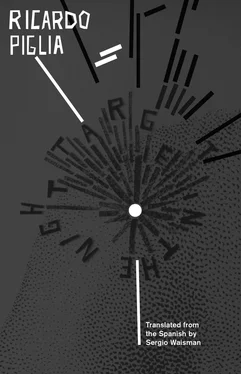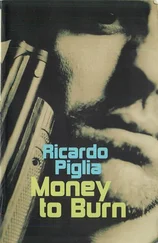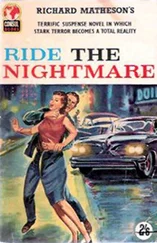Renzi liked how Bravo told stories. It was clear he had told this one so many times, polishing it along the way, that it was now smooth as a pebble. Of course a story can always be improved, Renzi thought, absent-minded. Bravo, in the meantime, had gone on to something else, picking up again on the conjectures about Durán. He thought Tony had gotten close to the Belladona sisters to gain access to the Social Club. With them he could enter, alone they would never have let him in.
“I would have liked to have warned Tony not to come around here,” Bravo said. He uses the pluperfect of the subjunctive , Renzi thought. He was so tired these were the kind of thoughts that popped into his head, thoughts once typical for him, when he was in college and he used to spend his time analyzing grammatical forms and verbal conjugations. Sometimes he wouldn’t understand what people were telling him because he’d get distracted analyzing syntactical structures as if he were a philologist enraged by the distorted uses of contemporary language. Recently it had been happening less frequently to him. But sometimes, when he was with a woman and he liked her way of speaking, he’d suddenly want to sleep with her because he was so excited by her use of the perfect preterit indicative. As if the presence of the past in the present justified just about any passion. In this case, it was only his fatigue and the strangeness that he felt being in that town in the middle of nowhere. When he heard the noises around him from the bar again, he realized that Bravo was telling him the story of the Belladona family, a story that seemed like any other story of an Argentine family in the countryside, but more intense and crueler.
“I’m sick of this trash,” Bravo said all of a sudden, completely drunk by this point. “I want to move to the Capital. Do you think there’d be any work for me at El Mundo ?”
“I don’t recommend it.”
“I’m getting out of here, for sure. I can’t stand it anymore. And I don’t have much time left.”
“Why not?”
“I want to be in Buenos Aires when Perón returns.”
“You don’t say,” Renzi said, waking up all of a sudden.
“Definitely. It’s going to be a historic day.”
“Don’t get so carried away,” Renzi said. He thought that Bravo wanted to be like Fabrizio, the character in The Charterhouse of Parma who went to Paris when he heard about Napoleon’s return so he could be there to welcome the general home. When he finally goes to Paris, Fabrizio spends his time surrounded by a group of enthusiastic young men of a seductive sweetness who — a few days later, as Stendhal writes — steal all his money.
Then they saw Cueto walking toward them, a snooty little smile on his face.
“What do the rented consciences of our homeland have to say?”
“Join us?” Bravo asked.
Cueto had the dry, stringy, vaguely repulsive body of an older man who does a lot of exercise and maintains a kind of pathetic youthfulness.
“Just for a minute, sure,” Cueto said.
“Have you met Renzi?” Bravo asked.
“You write for La Opinión , right?”
“No…” Renzi said.
“Ah, then you’re a failure…” Cueto flashed him a knowing smile and picked up the bottle of wine. He emptied a glass of water into the bucket of ice, served himself some wine, and offered to refill Renzi’s glass.
“No, I better not have any more.”
“Don’t ever stop drinking while you’re still able to think that it’s better if you don’t have anymore, as my aunt Amanda used to say.” Cueto savored the wine. “First rate,” he said. “Alcohol is one of the few simple pleasures we have left in modern life.” He looked around as he spoke, as if he were looking for someone he knew. There was something strange about his left eye, a fixed, bluish look, which made Renzi anxious. “There was an incredible news story yesterday, but of course you journalists never read the papers.”
Two young guerrilla women had killed a conscript at an air force base in Morón. 17They had gotten out of a Peugeot and walked up to the sentry box, smiling at the guard, with a 45 hidden in a Siete Días magazine. When the young soldier refused to turn over his weapon, they shot him dead.
“He resisted, the paper said. Just imagine if he’s going to resist? He must have said, Girls, what are you doing? Don’t take my rifle, they’ll throw me in jail. His name was Luis Ángel Medina. He could have been from the Province of Corrientes, who knows, a little dark conscript, they were fighting for him, the women, fighting on behalf of the dark oppressed of the world, but they went and killed this one.” He served himself another glass of wine. “They’re cooked, both of them, they’ll have to stay together from now on, right?” Cueto said. “Live in hiding in some farm in Temperley, stuffed in a hole, drinking mate , the two Trotskyites…”
“Okay,” Renzi said, so furious that he started speaking in too-loud a voice. “Inequality between men and women ends as soon as a woman takes up arms.” He went on, trying to be as pedantic as possible in his alcoholized haze. “In traditional societies, the term nobilis , or nobilitas , indicated a free person. By definition this means the right to bear arms. What happens if women are the ones who bear arms?”
“Would you look at that,” Bravo said. “Everyone’s a soldier! A soldier of Perón—”
“No, a soldier of the People’s Revolutionary Army!” Cueto said. “They’re the worst, first they go out and kill at random, then they put out a communiqué about the poor of the world.”
“Ethics is like love,” Renzi said. “If you live in the present, consequences don’t matter. If you think about the past, it’s because you’ve already lost your passion.”
“You should write these great nocturnal truths.”
“In reality,” Renzi said, “the greatest sacrifice is to abide with the second ethic.” 18
“The second ethic? Too much for me. Excuse me, my dear journalists, but it’s getting late,” Cueto said, and started to get up.
“What we need is a female serial killer,” Renzi continued. “We don’t have any women who kill men serially, without a motive, just because. There should be some.”
“For now, women only kill one husband at a time,” Cueto said, still looking around the room.
He had already washed his hands of them, he was fed up with their load of ridiculous abstractions. Cueto was sitting at the table with them, but he was essentially gone.
“I’m going, too, my friend,” Renzi said. “I traveled through the night to get here, I’m done in.”
Bravo walked with him through the night shadows of the town for a few blocks. They stopped at the edge of the main square.
“He wanted people to see him with Ada Belladona. I don’t understand,” Renzi said.
“He’s courting her, as they say around here. He used to be the attorney for the factory, the attorney for the Belladona family, actually. When the whole mess started between the two brothers, he split off. Now he’s the public prosecutor. He’ll go far.”
“There’s something strange with the way he looks.”
“He has a glass eye, he lost it playing polo.” Bravo got in his car and leaned out the window. “Were you trying to get him to bite? He’s a pretty dangerous guy, you know?”
“I’ve been wiping my ass with dangerous guys like that ever since I can remember.”
Bravo honked his horn to say goodbye, or as a sign of disapproval, and headed off toward the highway. He lived on the outskirts of town, in a residential neighborhood, up in the hills.
Renzi kept walking on his own, enjoying the cool evening. The municipal truck was watering down the empty streets, settling the dust. It smelled of wet earth, everything was peaceful and quiet. Many times, when he traveled long-distance by bus, he felt like getting out in some town in the middle of the highway and just staying there. Now he was in one of those towns and he had a strange feeling, as if his life were suspended.
Читать дальше












